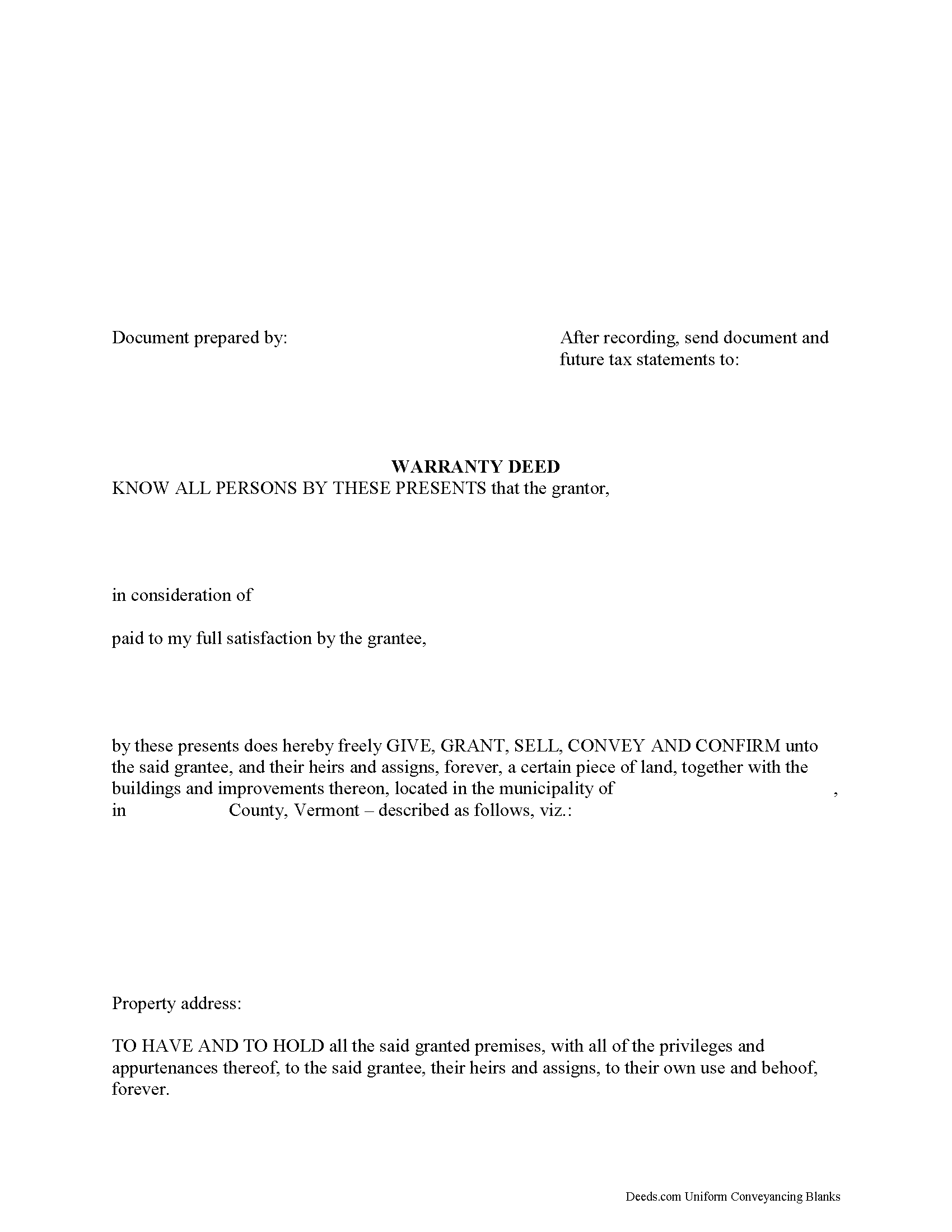Download Vermont Warranty Deed Legal Forms

Vermont Warranty Deed Overview

A conveyance of real estate in this state can be made by a deed in writing. Vermont does not have a statutory deed form. Statutory forms from other states should not be used for real estate deeds. Common law legal language is used in deeds. The grantor in a warranty deed in Vermont generally covenants to the grantee that the grantor is the sole owner of the premises being conveyed and has good right and title to convey the property. The grantor also covenants that the property is free from all encumbrances, except as mentioned in the deed. The general warranty deed also includes a covenant from the grantor to warrant and defend the title against all lawful claims and demands. A warranty deed is commonly used in both residential and commercial real estate transactions.
A warranty deed should be signed and acknowledged by the grantor before it can be recorded. Acknowledgments can be taken before a town clerk, notary public, master, county clerk, or judge or register of probate before the warranty deed is recorded in the town where the land subject to the deed is located. An acknowledgment before a notary public will be valid without an official seal being affixed to the notary's signature ( 341a). If a warranty deed is acknowledged out-of-state according to the laws of such state, the deed will be valid in Vermont as though acknowledgments were taken before a proper officer in the state ( 379).
Land records in Vermont are not handled at a county level. Real estate deeds are recorded in the town or city where the property is located. A warranty deed will not be effective to hold such lands against any person but the grantor and his or her heirs, unless the deed or other conveyance is acknowledged and recorded ( 342). Recording a warranty deed imparts constructive notice of the contents of the instrument.
(Vermont WD Package includes form, guidelines, and completed example)